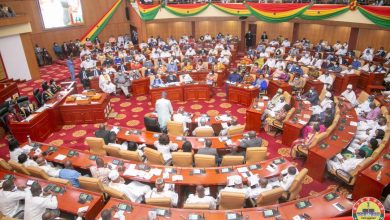NHIA to begin 6-month dialysis treatment support on June 1

Dr. Aboagye Da-Costa, CEO of the National Health Insurance Authority (NHIA), has announced that the NHIA will start providing financial support for dialysis treatment starting June 1.
This six-month initiative follows Parliament’s approval of GH₵2 million to aid dialysis patients across the country.
Speaking on Joy FM’s Super Morning Show, Dr. Da-Costa highlighted that nearly 1,300 Ghanaians currently require dialysis, with each renal patient needing approximately 12 sessions per month. The cost per session has risen from GH₵380 to GH₵491, making the total monthly expense for patients around GH₵6,000.
The funding allocation was determined by a committee of key stakeholders, including CEOs and medical directors from Korle Bu Teaching Hospital, Komfo Anokye Teaching Hospital, and Cape Coast Teaching Hospital. The committee was chaired by Dr. Nsiah Asare, the Presidential Advisor on Health, with contributions from a spokesperson for dialysis patients and Dr. Da-Costa himself.
Dr. Da-Costa explained that the support will cover the full cost of two dialysis sessions per month. For patients at Korle Bu, who already receive GH₵380 per session from a philanthropic source, the NHIA will cover the remaining balance. Patients at other facilities, who do not receive any additional support, will have the full cost of two sessions covered.
“Based on the money that we had, we knew that we could support two sessions at full cost. For Korle Bu, there is a philanthropy that supports each patient with GH₵380 so we will add the remaining balance so that they don’t pay anything for the two sessions.
“However, the patients at other facilities don’t get any support at all, and to be fair, we decided to support them fully for two sessions as well,” he explained the modality of implementation.
The final step before implementation involves developing a BRG code to ensure patients can access the support at hospitals and facilities. Dr. Da-Costa confirmed that the money is available and the mechanism will be in place by June 1.
“All I need now is to develop the BRG code so that when the patients go to the hospitals or facilities they can access this support. The money is available, it is left with the mechanism so by June 1 we should roll this out,” he confirmed.
Regarding the sustainability of the program, Dr. Da-Costa expressed hope that the government will allocate additional funds to continue the initiative beyond the initial six months.





